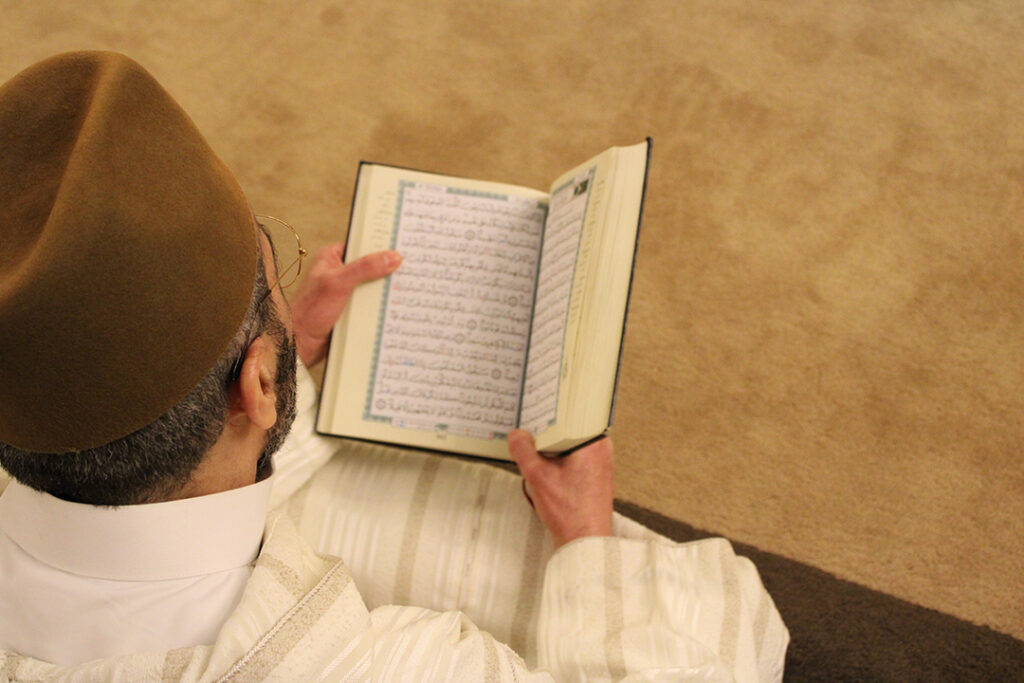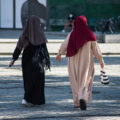France’s Ramadan dilemma: Balancing secularism and Islam in public life
France’s Ramadan dilemma: Balancing secularism and Islam in public life
Our analyst Muhammad Faisal Khalil looks at how this year’s Ramadan revealed France’s struggles to balance its secularism with Islam in public life.
This weekly comment was written by Muhammad Faisal Khalil and reflects his personal analyses and opinions, rather than those of EARS.
As Ramadan recently came to an end, France finds itself embroiled in a debate over the growing visibility of the Muslim holy month and the role of Islam in public life. The nation’s struggle to accommodate the religious practices of its Muslim population has been brought to the forefront by a TikTok trend that encouraged absenteeism from schools during the Eid al-Fitr holiday.
The debate
The trend, initiated by influencer masdak_trading, gained massive traction as his video, ‘absent from classes due to religious holidays’, received over two million views.[1] Journalist Paul Sugy of the conservative newspaper Le Figaro reported that schools in the Île-de-France region experienced up to 80% absenteeism on the day of Eid.[2] The newspaper described the situation as follows: “Friday, the day Ramadan broke, some schools in Île-de-France were almost deserted. Calls not to go to class had multiplied on social networks.”[3]
Critics argue that the French secular state, which follows a predominantly Christian calendar, does not fairly recognise the religious practices of other faiths. Rim-Sarah Alouane, a commentator on the issue, highlighted that accommodations have been in place since May 2004 for students to take a day off for religious holidays. She noted that the outcry over the TikTok trend is “another moral panic based on hatred,”[4] and pointed out, “our very laïque and secular state still follows a very Christian calendar and we have many days off on Christian holidays.”[5]
On the other side of the debate, some politicians have expressed concern about the growing visibility of Islam in public life. For example, Florence Portelli, the Mayor of Taverny, voiced her alarm over the high absenteeism rate in her town: “400 out of 2,000 elementary school students were missing in Taverny.”[6]
A broader issue?
This debate, however, points to a broader issue: France’s struggles with the visibility of Islam in public life. While writing for the Washington Post, French journalist, author, filmmaker, and activist, Rokhaya Diallo recently highlighted the country’s peculiar approach to secularism, or ‘laïcité’.[7] Diallo pointed out that the visibility of Islam in public life, especially in sports like football, often clashes with France’s secular ideals.
One example she offered was that of Algerian defender Jaouen Hadjam, who was cut from the Nantes football team because he refused to stop fasting during home games. The team’s manager, Antoine Kombouare, defended his decision, saying, “it is not a punishment. I set rules. It’s his choice, and I respect it.” In another instance, the French Football Federation (FFF) sent a message to referees, stating that match interruptions due to breaking the Ramadan fast do not respect the FFF’s provisions.[8]
Diallo points out that other countries, such as the UK, Germany, the Netherlands, Italy, and Spain, permit players to break their fast during matches, yet France remains an exception. This reluctance to accommodate Islamic practices is further exemplified by the FFF’s refusal to allow female players to wear a hijab on the field, which contradicts FIFA’s global policy.[9]
To support her case, Diallo reminds us of controversies surrounding the ‘burkini’, a modest swimsuit for observant Muslim women, and the French athletic brand Decathlon, which faced backlash from government ministers after marketing a runner’s hijab. She emphasises that such cases illustrate Muslims actively participating in public life, rather than withdrawing from it, which is “citizenship in the truest sense of the word.”[10]
Striking a balance
France is arguably facing the challenge of accommodating the religious practices of its increasingly diverse population while upholding its secular principles. The recent debate over Ramadan and Islam’s visibility in public life highlights the nation’s complexities in navigating these issues. It is perhaps vital for France to strike a balance that respects the rights and beliefs of all citizens while maintaining its commitment to secularism. The upcoming 2024 Olympic Games in Paris[11] add to the urgency of creating an inclusive and welcoming environment for athletes and citizens from different cultures and religious backgrounds. The discussion raises questions about the adequacy of existing accommodations in France for religious holidays and the need for equal treatment of all faiths.
This weekly comment was written by Muhammad Faisal Khalil and reflects his personal analyses and opinions, rather than those of EARS.
Interested in similar topics? Go to our Dashboard.
Sources
[1] À l’école, l’absentéisme pendant l’Aïd a bondi, encouragé par une tendance TikTok
[4] Rim-Sarah Alouane @RimSarah
[5] Rim-Sarah Alouane @RimSarah
[7] Opinion | This Ramadan showed how France isn’t comfortable with Muslim athletes – The Washington Post
[8] Opinion | This Ramadan showed how France isn’t comfortable with Muslim athletes – The Washington Post
[9] Opinion | This Ramadan showed how France isn’t comfortable with Muslim athletes – The Washington Post
[10] Opinion | This Ramadan showed how France isn’t comfortable with Muslim athletes – The Washington Post
[11] Paris 2024 Summer Olympics – Summer Olympic Games in France






